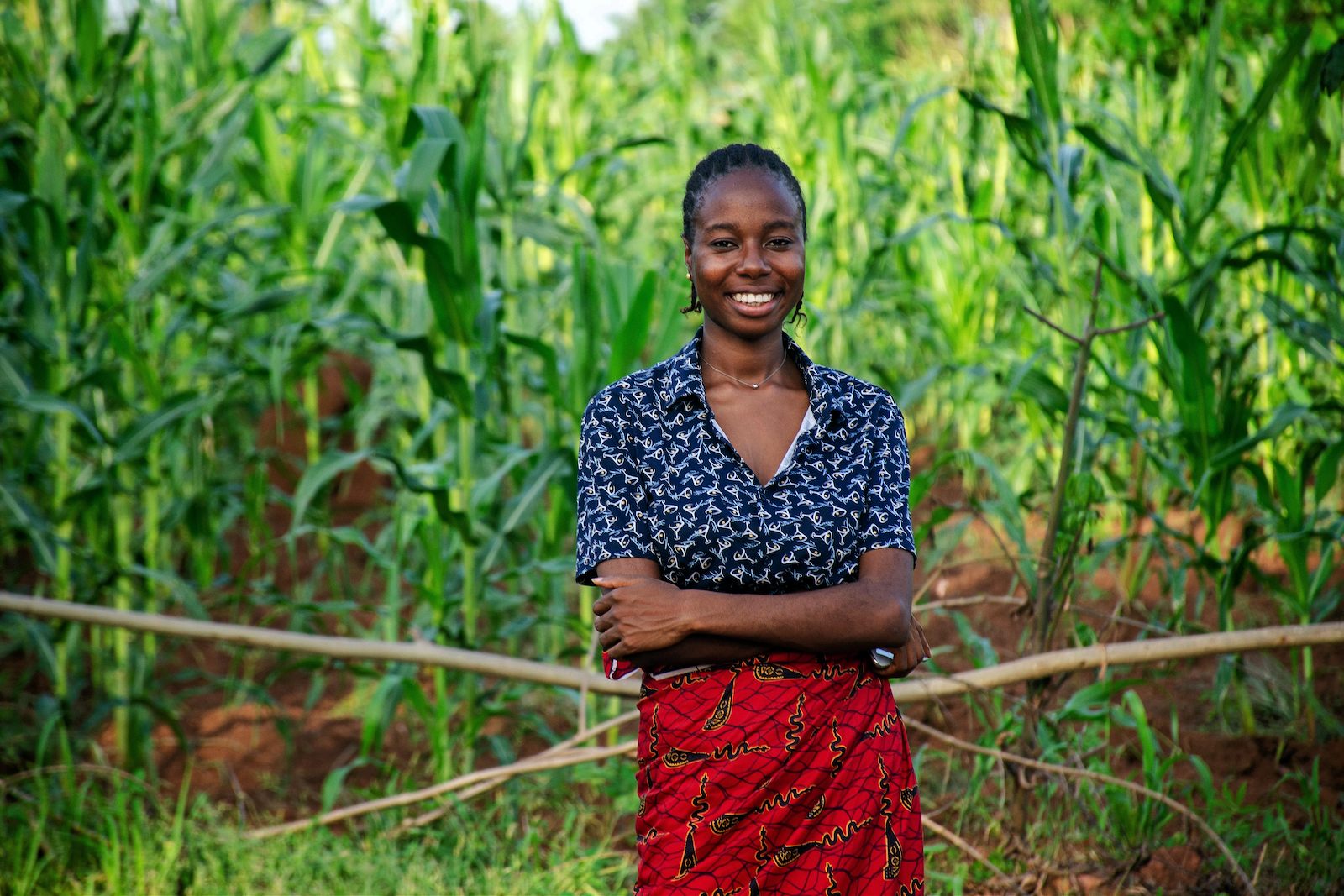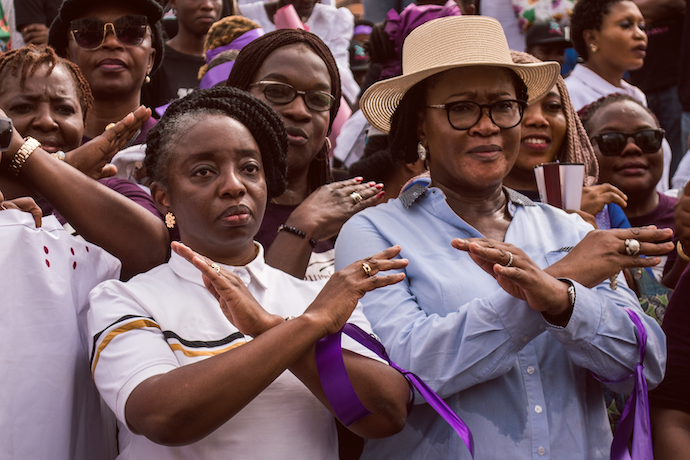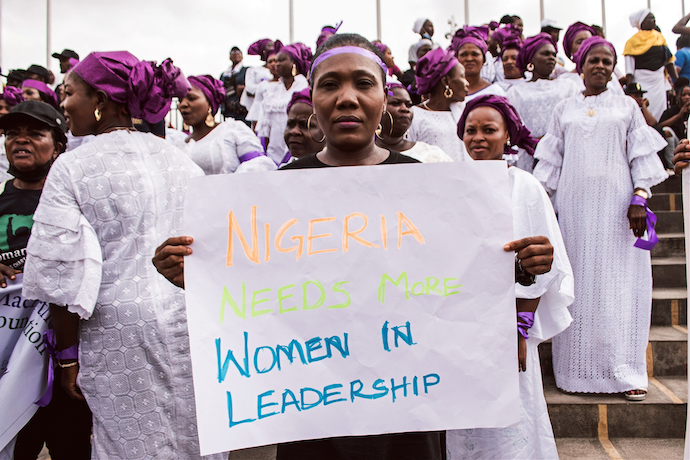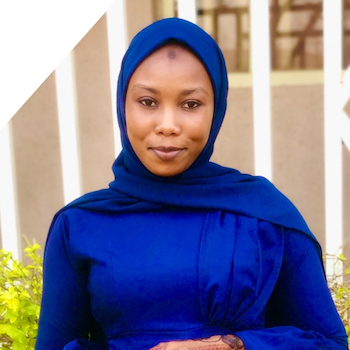
How to Empower Nigerian Women to Get Involved Politically
Growing up in a community that values cultural traditions, Anna Bitrus refused to give up on her political aspirations, even when discouraged by her immediate family and community. She battled these critics when she first expressed an interest in politics. Despite their disapproval, she never let her hopes fade away.
Eventually, Anna Bitrus became the only female council supervisor out of the four in her local government in southern Borno State.
Anna, who is an active and vibrant young woman, recently shared with me her political journey, as well as the patriarchal structure of her community and how she persevered despite opposition from members of her community.
“My parents believed that my interest in politics would put my dignity at stake, and they were afraid that it would bring criticism and judgment upon our family,” Anna shared with me in an interview.
Anna explained that her father was concerned about her being single because there is a common perception that young women should not participate in politics, regardless of their motives.
Anna also discussed how her passion nurtured her dreams in politics. “At the time, I didn’t know exactly what I wanted to achieve in politics, but I knew I wanted to participate. So, I had to plead with my parents every day. Fortunately, other relatives supported me in convincing them, and that’s how I got started.”
“As a young woman from the northern region, I knew politics wouldn’t be easy. That’s why I sought guidance from people in my locality whose passion inspired me. They mentored me as I demonstrated my commitment.”
The negative perception of young women in politics is not limited to this region alone; it also includes doubts about their ability to be entrusted with leadership roles.
Anna shared how people’s lack of confidence in her has been challenging, as it created self-doubt. However, she persisted and continued to prove herself until she was finally given the position of council supervisor. “It was a long journey, but I am grateful for the opportunity to prove myself.”

In northern Nigeria, cultural and social sentiments are strong, and the people of the region value norms that discourage young women from participating in politics.
Lucy Unana, the Executive Director of Women in the New Nigeria and Youth Empowerment Initiative, pointed out in an interview that immediate family members are often the first to question a woman’s intention to join politics. They worry about what society will think of her, and this pressure can lead women to reconsider their decisions. “This pressure often causes the woman to think twice about joining politics,” she explained.
In 2021, The Conversation Africa interviewed Damilola Agbalojobi, a political scientist and gender specialist, to explain the lack of representation of women in Nigerian politics.
According to Damilola Agbalojobi, “There are multiple factors. Some are related to the political party systems and structures. For instance, the high cost of politics prevents women from standing for positions. Often women don’t have enough money to pay for the mandatory expression of interest and nomination forms required by political parties to run for positions on their platforms. In addition, election campaign costs are exorbitant. And poor access to education means poor access to gainful employment. Unpaid labour burdens, unequal inheritance rights and outright discrimination also mean that women are less likely to be able to afford to follow through the process of getting leadership positions.”
Experts have attributed the poor participation of women in politics to the patriarchal nature of Nigerian society, which has its roots in the political party structure. This structure threatens the participation of female aspirants and undermines their candidacy.
Ali Aliyu, the Secretary of the Borno State People’s Democratic Party (PDP), highlights the significant role that societal sentiment plays in shaping an individual’s decision, including the decision of young women to participate in politics. He notes that the prevailing belief that a young woman should get married rather than pursue a career in politics stands in the way of many women interested in politics.
Mahmud Mohammad, a former Special Adviser to the Nigerian vice president-elect, also expressed concern about the lack of support for young women in Borno State, but also elsewhere in Nigeria, who express an interest in politics. He points out that in a society like Borno State, only a few, if any, would support a young woman who wants to pursue a political career. This lack of support further discourages young women from participating in politics.
In 2022, at a one-day meeting organized by the Centre for Democratic Development (CDD), Beatrice Eyong, the UN Women Country Representative to Nigeria, highlighted that women’s participation in Nigerian politics is significantly lower compared to other African countries.
This is supported by a report by Gender Strategy Advancement International, which indicates that women’s political participation in Nigeria stands at a mere 6.7%. This figure falls below the global average of 22.5%, the African regional average of 23.4%, and the West African subregional average of 15%. The report underscores the need for concerted efforts to address the barriers to women’s political participation in Nigeria.

Aisha Adamu Abdullahi, who is running for the House of Representatives in Borno State under the Social Democratic Party, emphasized the potential power of getting more women involved in politics to effect change. Supporting fellow women who aspire to represent their communities is vital in achieving this goal. She urged every young woman committed to contributing to national development to stand firm and protect their interests. With the support of others, they can overcome the barriers that hinder women’s political participation and make a meaningful contribution to the nation’s progress.
Women comprise more than 49% of Nigeria’s population. Despite their low participation, Lucy Unana encourages young women not to give up.
“We cannot let societal intimidations and discrimination break us as women,” she said. “We have already fought through numerous battles and are making a significant impact. I am calling on young women in [Borno State] and beyond to join us in politics. Your age is not a barrier, as credibility is essential. Don’t let societal perceptions hold you back. We are here to mentor and ensure you soar in your political journey.”
Anna Bitrus is using her voice to encourage young women to pursue their political dreams despite societal pressure.
“Don’t let society’s perception of young women in politics define who you are or what you can become,” she said. “When I started my political career, people’s opinions threatened my dreams. But I persevered, and now I am married and still pursuing my career as a politician. You, too, can do the same or even more.”
Her message is clear: Young women should not be held back by societal expectations and should strive to achieve their goals regardless of what others have to say.
According to Ali Aliyu, to overcome the issue of societal prejudice toward young women’s involvement in politics, cultural and religious leaders should be involved in political discussions at all levels. He believes that these leaders significantly influence public opinion and beliefs, and their involvement can help create sustainable awareness of the issue.
In addition, Ali suggests that increasing the visibility of women in mainstream media can be a strategy to highlight the importance of women in politics and raise awareness of the negative perceptions surrounding them. By highlighting the successes and achievements of women in politics, the media can help change societal attitudes toward women in politics.
Ali Aliyu believes that programs that focus on women in politics should be conducted in local languages since the opinions of older adults still hold significant sway in many communities. Using local languages, these programs can reach a wider audience and help change societal attitudes toward women’s participation in politics.
Lucy Unana, on the other hand, stresses the importance of mentorship for young women interested in politics. She believes that women who are already in political positions or understand the nuances of politics should guide and mentor young women to help them achieve their dreams. She also emphasizes that negative opinions should not deter young women from pursuing their political dreams and that they should be encouraged to focus on their goals as individuals.
Mahmud Mohammad says political parties must provide equal opportunities for women and support them in assuming any position they desire.
He believes that certain positions can only be effectively championed by women, and limiting their access to them deprives Nigeria of the opportunity to benefit from their contributions. As Nigerians, we must do better and support women who are ready to deliver and make a positive impact on society.
Premium Times, a Nigerian news outlet, reported that only 157 women have been elected to the National Assembly since 1999. This number includes 38 female senators and 119 female members of the lower chamber. In comparison, during the same period, 2,657 men were elected, comprising 616 senators and 2,041 members of the lower chamber.
It is commendable that steps are being taken to break down the societal misconceptions that hinder young women from participating in politics. Swift implementation measures should be implemented to ensure that traditional and religious leaders are included in every sensitization strategy. These leaders hold a crucial position in shaping the perceptions, decision-making, and beliefs of their society. It is hoped that politicians at all levels in Borno State, but also in Nigeria, will prioritize this approach.
This story was supported by African Women in Media, as part of the AWIM/LUMINATE Media and Young Women in Politics Project.
